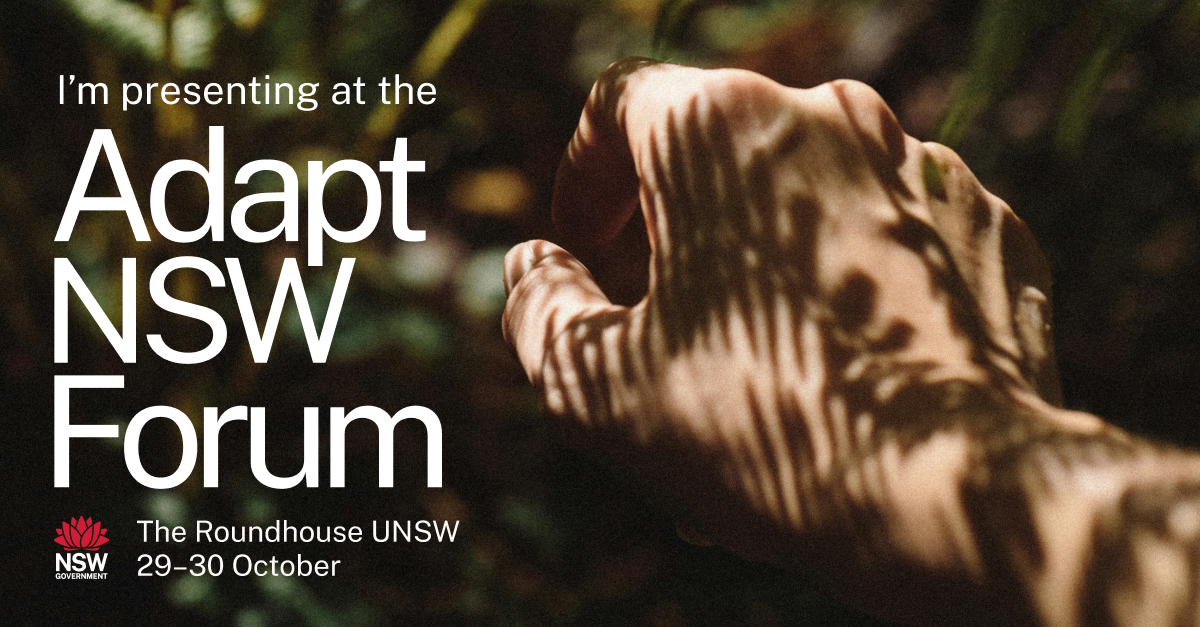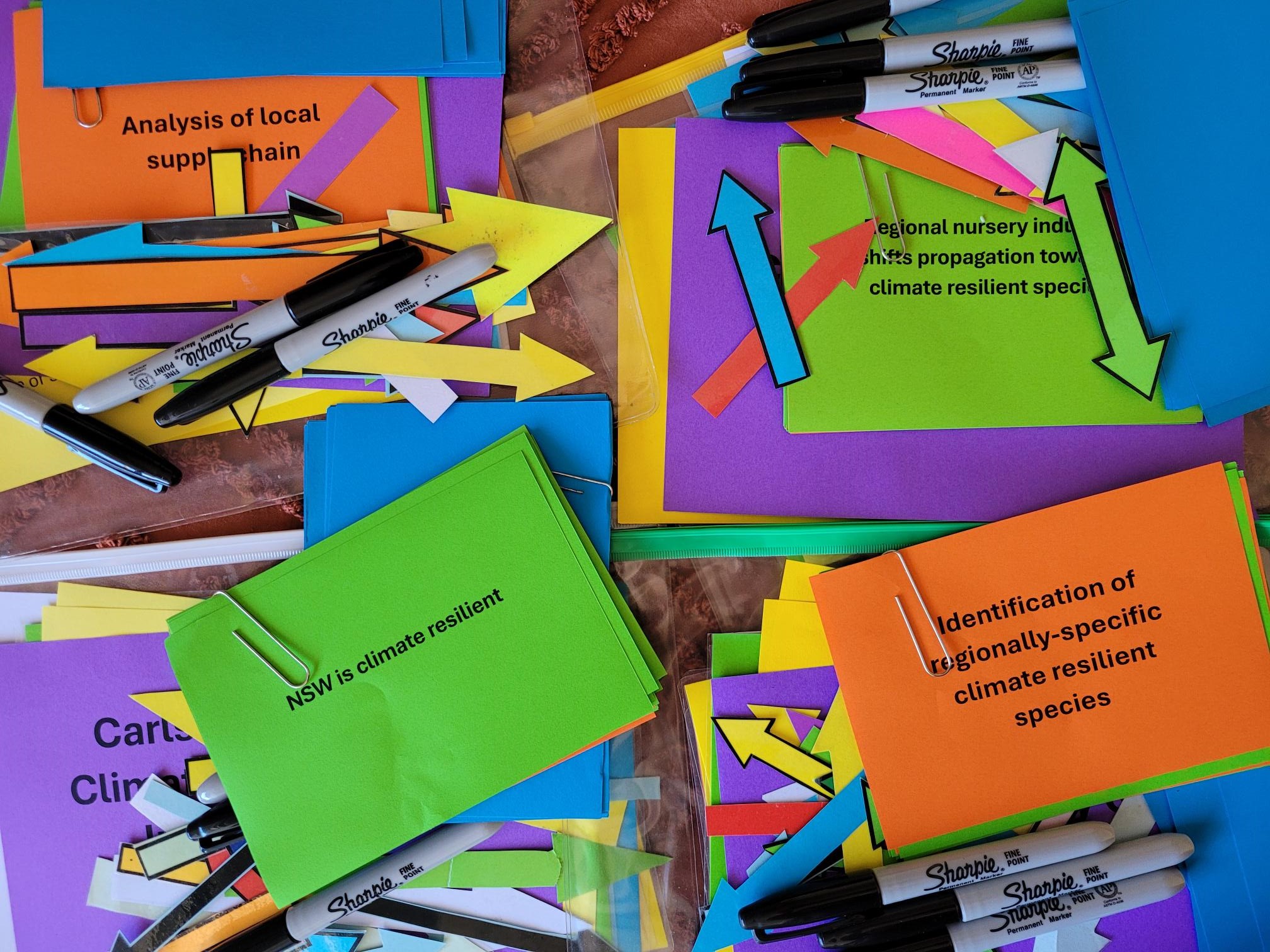Thinking our Way Through Change: A Masterclass on Theory of Change in Climate Change Adaptation
Written by Beth Hanson and Mathilde Wennevold
What outcomes are we trying to achieve? Are the programs we’re designing and delivering going to get us there?
“Everyone should be doing Theory of Change”
says Bethany Hanson, Principal Consultant at Clear Horizon, when asked about her recent masterclass ‘What is your theory of change? Designing high impact programs in a changing world’ at AdaptNSW Forum 2024.
The AdaptNSW Forum is an annual New South Wales Government event that brings together an exciting mix of all levels of government, industry, not-for-profits, researchers, and academics focused on climate adaptation. The Forum offers a variety of presentations, panel discussions, and hands-on workshops. Beth led one of the forum’s most interactive masterclasses, sharing her thoughts on why Theory of Change (ToC) is such a powerful and versatile tool to help maximise the impact of adaptation programs.
What is Theory of Change?
ToC is primarily a thinking tool. It helps us to get clear on how the work we do brings about the change we are trying to create. ToC steps out the causal pathways between our activities and the cascade of outcomes we expect to occur as a result, ultimately articulating what our unique contribution to the broader goals of a program are. It’s an amazing tool for teams to develop a shared understanding about their program and to think critically about how their efforts connect to the outcomes they aim to achieve. It can be applied at any level from small-p project to large-P program making it a valuable tool for anyone in an organisation, whether frontline staff or senior leaders.
When asked if she has a preference between ToC and other similar tools like Program Logic, Log Frames, and Results Charts, Beth says she works with each client to find the tool that best suits their needs and the organisation’s terminology and ways of working.
“What matters most is that people engage in the critical thinking needed to ensure their work leads to the outcomes they want.”
The use of these tools isn’t about following a strict formula but enabling thoughtful planning and reflection during implementation so we can learn and adapt along the way.
Beth Hanson, Principal Consultant
During Beth’s workshop at AdaptNSW, participants had the chance to apply concepts through hands-on exercises. The workshop was structured around three main activities:
- The Theory of Change Puzzle — Participants worked in groups to assemble the components of a Theory of Change, mapping the causal pathways between activities, outcomes and their broader goals.
- Surfacing assumptions – In this activity, Beth guided participants to question the assumptions behind their causal pathways. This is critical for identifying:
- where we may need to focus measurement,
- opportunities to improve program design, and
- where we may not have a sufficient understanding of the problem we are trying to solve or opportunity we are attempting to seize.
- Responding to new information – One thing is certain in the climate adaptation space – our understanding of problems and opportunities, and what we need to do to effectively address those is constantly evolving. This final activity focused on how to reassess and refine our ToC when new information and data emerges.
Beth summarised the three key takeaways for workshop participants:
- Having a ToC is better than not having a ToC. Don’t worry if you’ve started your program already, or that your ToC isn’t perfect. Develop something and hold it lightly.
- Get others involved. Bring as many diverse program stakeholders into the process as possible. Different stakeholders understand the problems and opportunities differently, as well the likely effectiveness of different activities, ultimately leading to better designed programs.
- Revisit your ToC regularly! Our programs and the contexts that we work in are not static, nor should your ToC be. Use it to help you think your way through change and respond to new information.
Your chance to learn about Theory of Change
Those who couldn’t attend Beth’s masterclass at this year’s AdaptNSW Forum can still learn about Theory of Change in our upcoming foundational online course ‘The Complete Guide to Measurement, Evaluation, and Learning (MEL)’. This course provides a practical and comprehensive introduction to evaluation. We also offer a great deep-dive course into Theory of Change for those looking to unlock this powerful tool in their work.
If you want to strengthen your approach to program evaluation, visit the Clear Horizon learning hub to learn more about the course and how these frameworks can help create real change in your work. We hope to see more professionals joining this journey to make an impact with thoughtful, structured, and adaptable strategies.
Do you have questions about the Theory of Change, our courses, or anything else? We’d love to hear from you!





